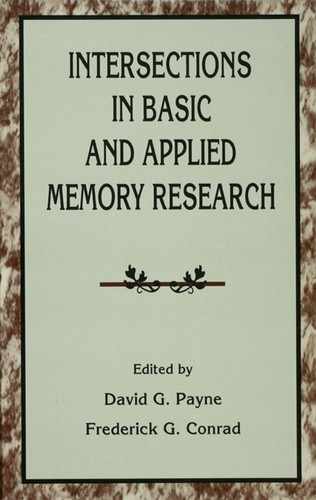A
Alzheimer’s disease, see Dementia
Amnesia, see also Method of vanishing cues
organic, 138
thematically induced, 116, 119–126, 128–130
visually induced, 116, 119–126, 128–130
Attention, 119–121, 124–126, 128–129
magnets, 123
Autobiographical memory, 79, 133, 193–195, 207–212
B
Beliefs,
as a predictor of memory work participation, 246–249
influence on memory, 236–238, 252–254
C
Cerebral representation, see Neuroscience
Cognitive interview, 165, 158, 186–187
Computers,
learning to use, see Skill acquisition Confirmatory bias, 236–237
defined, 236
Context, 175–177, 179–188, 293–294
reinstatement, 215
D
Day of Week (DOW), 199, 201–204
Demand characteristics, 176
Alzheimer’s disease, 311–312, 319, 321
“E-I-E-I-O” model of treatment, 312, 322
external memory aids, 313–318, 320–321
spaced-retrieval as a memory aid, 318–320
conceptual encoding account, 95, 106–107
strategic retrieval account, 95, 106–107
Discriminant function analysis, 242–249
Dissociative reactions, 135–136, 140, 147
Distinctiveness,
linear versus matrix array, 224–228
Document search, 10
Dose response function, 115
E
Easterbrook hypothesis, 116, 126, 128–129
Ecological validity, 72
positive effect on memory, 115–117, 121
negative effect on memory, 115–116, 126, 128
Episodic memory, 195–198, 204–208, 280
Event dating,
effects of long retention intervals, 203–204
individual differences, 200–204
schematic information, 201–203
Event memory, 176, 180, 183, 294
effects of long retention intervals, 203–204
individual differences, 201–205
Eyewitness memory, 70–71, 133, 146–148, 165, 176, 180–184, 186, 210–211, 279, 291
F
Figure-ground separation, 259–260
Flashbulb memories, 76, 79–81, 134, 144–145
Focusing
weapon, 119–120, 126, 128, 143
Fuzzy trace, 158–159, 161–162, 165, 167, 171
accessibility, 166
age, 160
delay, 167
G, H
Hypnosis, 291
I, J
Implicit memory, 51–52, 313–314, 318–320
Individual differences, 73, 177
L
Learning versus relearning, 223–224
Legal issues,
see False memory
Police line-ups, 17
see Speech perception
M
Memory,
autobiographical, see Autobiographical memory
beliefs about, 238–246, 249–254
beliefs about traumatic, 241–242, 250
central details, 116–120, 124–129, 142–144, 149, 152
client’s beliefs about, 233–234
for core details, 194, 204–205
and depression, see Depression
distortion, 157, 161, 165–171, 264, 270
episodic, see Episodic memory
explicit memory, see Explicit memory
eyewitness, see Eyewitness memory
caricature recognition, 263
false memory, see False memory
flashbulb, see Flashbulb memory
forgetting, see Forgetting
for graphs, 271
impairment, 6,
see also Amnesia
see also Dementia
implicit memory, see Implicit memory
item and order information,
defined, 215
memory for temporal sequence, 222–227
memory for spatial arrangement, 222–227
long-term retention,
procedural reinstatement, 215–216, 228, 216
maintenance,
memory for course schedules, 215–217
memory for word lists, 220–227
misconceptions about, 234, 242, 249–250
and mood, see Mood
peripheral details, 116–119, 121, 128, 142–143, 149–150, 152
permanence, 241
post-event elaboration, 115–116, 128
recall strategies, 178–180, 184
retention interval, 115–116, 118, 143–145, 161, 167–168
for source, see Source monitoring
storage failures, 158, 159, 160, 161, 166–167
suppression, 135
Method of vanishing cues, 51–52
Models,
context, importance of, 50–55 1
extra-theoretical factors, 52
uses in basic and applied research, 57
variance accounted for, 53
Mood,
and depression, 89–96, 106–110
mood dependent retrieval, 139–140
N
Naturalistic versus laboratory tasks, 72–83, 217–228
correlation versus causality, 74
Neural circuitry, see Neuroscience
O, P
Outshining hypothesis, 185
Pain, 135
Procedural knowledge, 217
Processing,
pre-attentivc, 134–135, 146, 151
Recall, 158
Recognition, 158
Research,
attributes of,
interaction of basic and applied, 5–26, 46–55
professional organizations, 29–30
publications, 30
recommendations for improving, 39–41
tetrahedral model of, 58
methodology,
inferential processes, 33
Retrieval, 138–139, 140–141, 145–147, 166
S
Search of Associative Memory (SAM), 53–54
Schema,
and autobiographical memory, 209–210
and event dating, see Event dating
temporal, see Event dating
Schematic memory
defined, 206
and event dating, see Event dating
individual differences, 208–209
persistence of, 205
Scripts, 210
Source monitoring, 168, 237–238
misattributions, 157–159, 161–163, 165, 168
direction estimates, 270
perspective, 269
Structured interviews, 178–179, 181–184
Suggestibility, 157–159, 161–162, 165–169
T
Temporal trace,
defined, 206
Transfer Appropriate Processing, 56–57, 93–96
Tunnel memory, 136, 147–150, 151–152
V
perceptual factors, 259–264, 269
canonical view, 262
grouping of visual elements, 269–270
W, Y
